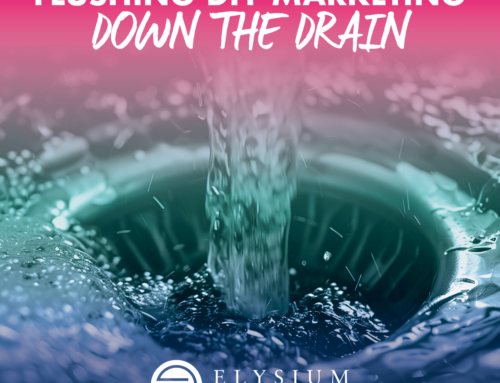Elysium Marketing Group Philadelphia has had the pleasure of working across multiple genres since its inception in 2015. And while we have had to pivot often to make sure our strategies are the correct ones for each category, one strategy that is universally beneficial is testimonials. They are truly that important.
The main reasons why testimonials work:
- The Stats. According to Big Commerce, “92% of consumers read online reviews and testimonials when considering a purchase. 88% of consumers trust online reviews as much as personal recommendations. 72% of them say positive reviews and testimonials make them trust a business more.”
- Social Proof. If you’re a company such as Under Armour or Starbucks, you don’t necessarily need as much social proof. People know you and the quality of what you offer. But if you are a start-up or a company that hasn’t been around for a while, people don’t know whether it’s worth their money to spend with you or a competitor. If many people are vouching for your product or service, it makes the decision easier in consumer’s minds.
- People are conditioned to look for them. Amazon, much? How many times are you shopping on Amazon, and click those little yellow stars to see what people have to say before you make a purchase? It’s become second nature that before you buy a product, you look for how many stars it has. When we work with e-commerce companies, one of the first things we do is look on their website for testimonials. If they don’t have any, it’s one of the first areas we tackle.
- They’re table stakes. People assume if you don’t have any testimonials, that you literally have no one to vouch for you. If you are a new business, how do I know that you can do the services you say you can? Asking people from a previous position related to your business will still work if it’s in the same field.
- They help with SEO. If someone leaves you a testimonial on Google, this helps to signal to Google that you are who you say you are, and you are someone that should show up in search results. The reviews are fresh content on your website, so it also helps with increasing important keywords on your site. If you sell product X and a testimonial is given about how wonderful product X is, that helps signal to Google that you should show up for product X as a keyword, so your natural search traffic increases.
Testimonials can and should be used in multiple mediums. Your website should have testimonials. Where do people go to find out more about your products or services? Your website! If you are offering a service, it’s common to have a testimonial page and/or include a couple testimonials on your homepage. If you are an e-commerce website, you can have a testimonial attached to each product. As previously mentioned, people are conditioned to look for testimonials when they are shopping online. If you don’t have them, you are literally asking people to bounce off of your website and buy from someone else.
Testimonials can also be used in your email, social media, and digital ads. It’s a great way to show off positive feedback you’re getting from current customers and clients.
Some of the obvious ways you can ask for testimonials:
- E-commerce – Build them into your loyalty program (offer an appropriate incentive)
- Send an email asking for a quick recommendation – if you know they are super busy, you may want to ask if they want you to write it and they can sign off
- Ask at the end of a phone call when they are praising your work/company
Testimonials are table stakes. While it’s not always the most comfortable situation to ask for them, it’s well worth it for your business to secure and use them. If you’re a service. we recommend asking when a client or customer has just emailed you about their satisfaction or is on the phone telling you about their satisfaction. They can take that sentiment, log onto your website or Google My Business, and give that same praise there. If you’re ecommerce, we recommend implementing an automated process to gain testimonials after each transaction.




